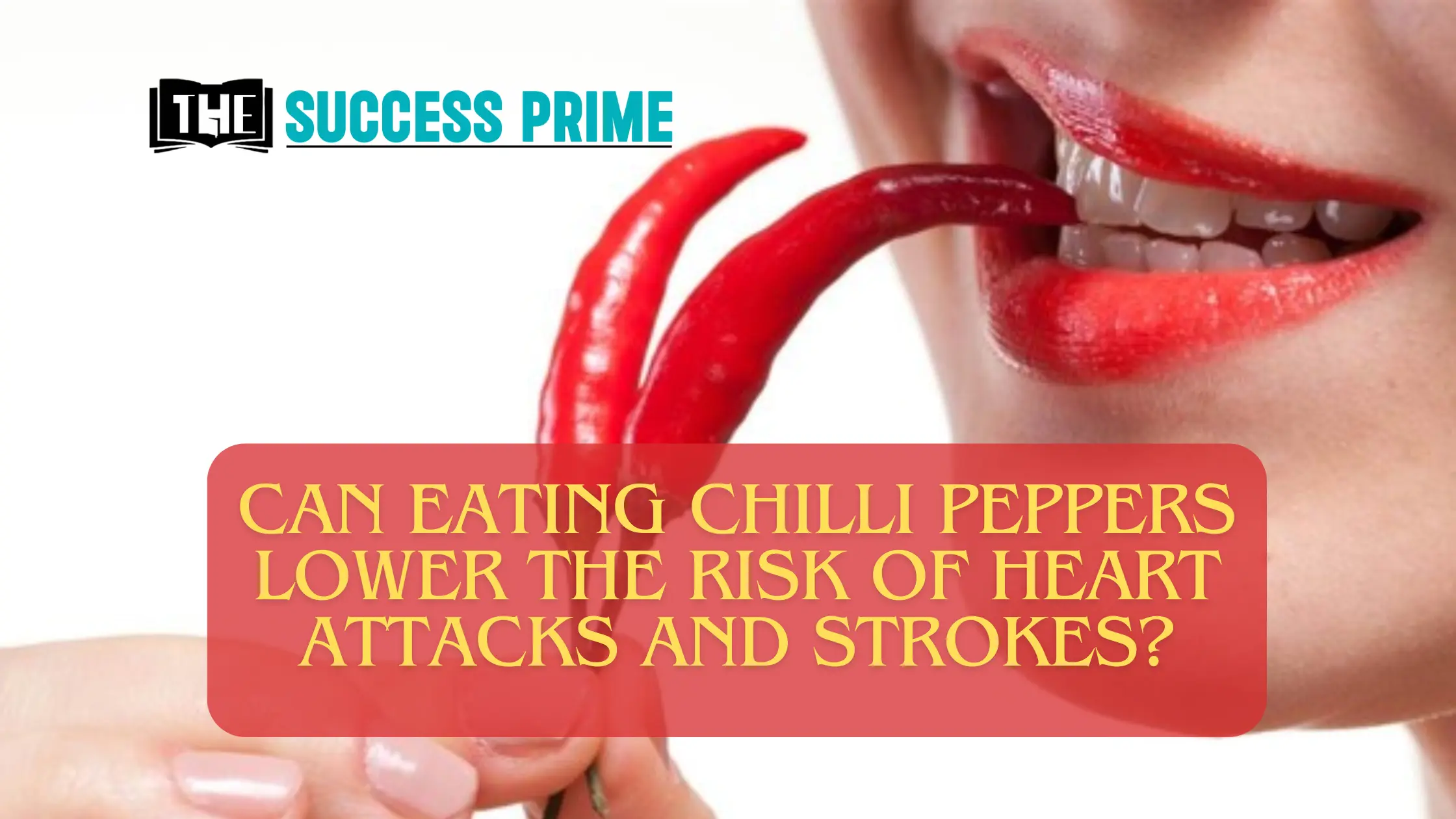You could be doing your heart a favour if you prefer your cuisine very spicy. According to new studies, consuming chilli peppers reduces the risk of heart attack and stroke, according to research.
Chillipeppers (Capsicum annuum) are the hot-flavored fruits of the Capsicum pepper plant. They belong to the nightshade family, which includes bell peppers and tomatoes. Chillipeppers come in a variety of flavours, including cayenne and jalapeo. Chillipeppers are typically used as a spice, and they can be cooked or powdered. Paprika is a spice made from powdered red Chillipeppers. Chillipeppers’ principal bioactive plant ingredient, capsaicin, is responsible for their distinctive, spicy flavour as well as many of its health advantages.
Can Chilli Peppers Prevent Heart Attacks And Strokes?
| Production of Chillies and Peppers, Green | |
| Region | (Millions of tons) |
| China | 19.0 |
| Mexico | 3.3 |
| Turkey | 2.6 |
| Indonesia | 2.6 |
| Spain | 1.4 |
| World | 38.0 |
According to a study published in the Journal of the American College of Cardiology (JACC) in December, people who ate chilli peppers four times a week or more were 40% less likely to die from a heart attack and 60% less likely to die from cerebrovascular disease such as stroke than those who did not eat chilli peppers on a regular basis.
According to CNN, researchers studied 23,000 people in Italy over eight years and discovered that those who ate chilli peppers at least four times a week had a 40% reduced risk of heart attack and a more than 50% lower chance of stroke. The findings were published in the Journal of the American College of Cardiology recently.
“An interesting fact is that mortality risk protection was independent of the type of diet people followed,” said Marialaura Bonaccio, an epidemiologist at the Mediterranean Neurological Institute. “In other words, someone can eat a good Mediterranean diet, and someone else can eat a less healthy diet, but Chillipepper has a preventive impact for all of them,” she explained.
Capsaicin, the chemical that gives chilies their heat, is considered to be responsible for their health benefits. Although there is some evidence that it can assist with other health conditions, such as weight reduction, so far there has been little solid evidence linking it to a lower mortality rate.
Other Research Data
Over seven years, research done in China and published in the BMJ in 2015 monitored more than half a million men and women and found that those who ate spicy dishes six to seven days per week had a 14 percent lower relative risk of mortality. Based on data from the US National Health and Nutrition Examination Survey, a study published in PLoS One in 2017 found a 13 percent reduction in overall mortality linked to the use of spicy Chillipeppers.
This investigation stands out because of the magnitude of the positive effect, according to Roshini Malaney, DO, a cardiologist from Manhattan Cardiology in New York City who was not involved in the study. “It might be linked to the Italians’ general healthy diet,” she said. In a concurrent editorial, J. David Spence, MD, a medical researcher, and professor at the University of Western Ontario in London, argues that all participants in this study ate better than the normal American diet.
Can Chillisolve all problems?
Capsaicin has been related to an increase in fat metabolism. It’s also possible that folks who use chillis in their diet also use toxic additives like salt or butter. People who eat spicy food eat less because of the heat generated in the body. Capsaicin binds receptors that provide warning signals to the brain that there is something hot in the mouth, thus they tend to appreciate their food more. Endorphins and dopamine are released by the brain in response to the spicy meal, producing a euphoric effect. Maintaining a balanced diet and exercise routine is important and should not be replaced with increased consumption of chillies.
FAQ:
- How do chilli peppers impact heart health?
Chilli peppers contain capsaicin, a compound that may help reduce inflammation, improve blood circulation, and lower blood pressure, all of which contribute to better heart health. - Can eating chilli peppers reduce the risk of a heart attack?
Some studies suggest that capsaicin may help lower cholesterol levels and reduce the buildup of arterial plaque, potentially lowering the risk of heart attacks. - Are there any studies that support the idea that chilli peppers prevent strokes?
Preliminary research indicates that the antioxidant properties of capsaicin might help reduce the risk of stroke by improving blood flow and reducing the likelihood of blood clots. - Is it safe to consume chilli peppers regularly for heart health?
In moderate amounts, chilli peppers are generally safe for most people and can offer potential health benefits. However, excessive consumption may cause digestive discomfort or irritation. - How much chilli pepper should I eat to experience the benefits?
There is no specific recommended amount, but incorporating a small amount of chilli peppers or capsaicin supplements into your diet may offer cardiovascular benefits. Consult with a healthcare provider if you have concerns. - Can everyone eat chilli peppers for heart health?
While most people can benefit from the compounds in chilli peppers, those with sensitive stomachs, acid reflux, or certain medical conditions should consult a doctor before adding them to their diet regularly. - Are there other foods that help prevent heart attacks and strokes?
Yes, a heart-healthy diet rich in fruits, vegetables, whole grains, and healthy fats, combined with regular exercise, is essential for reducing the risk of cardiovascular issues.
















Leave a Reply